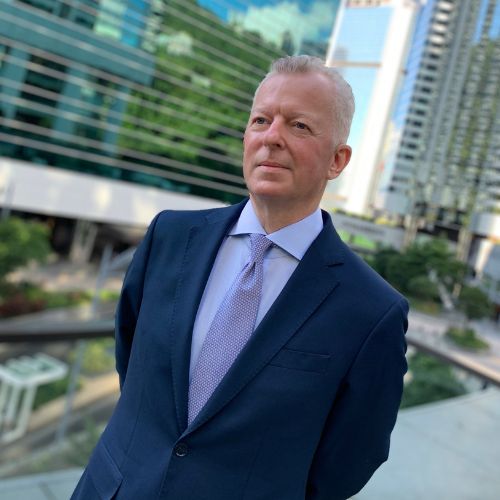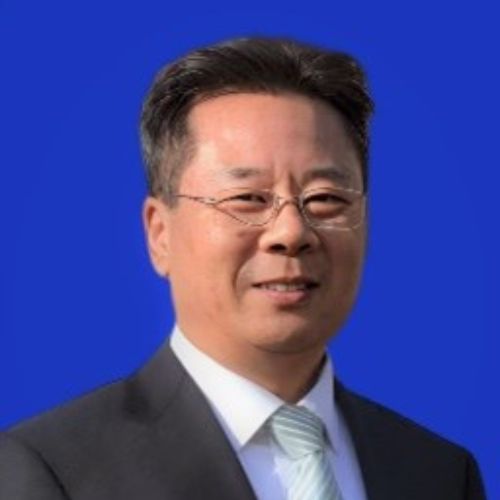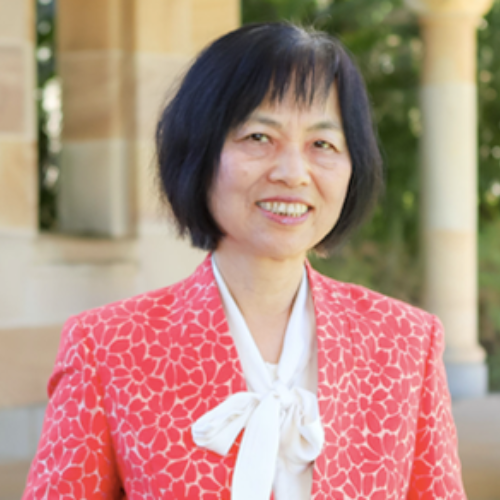Plenary Speakers
 |
Prof. Geert Jacobs Professor, University of Ghent, Belgium |
Leadership, personal branding and podcast: a discourse perspective
In this talk I draw on a mix of multimodal discourse analysis, linguistic ethnography and critical management theory to investigate how entrepreneurial podcasting has opened up new opportunities for leadership communication. In particular, I set out to demonstrate that today’s audio boom constitutes a unique site for exploring how entrepreneurs are negotiating the affordances of the rapidly changing digital mediascape for personal branding and for communicating their visions on what it takes to be successful in business.
Bio
Geert Jacobs is a Professor at the Linguistics Department of Ghent University. He is a former President of the Association for Business Communication and has published widely in the field of media and institutional discourse studies.
 |
Charles Lankester EVP Global Reputation & MD Hong Kong, Ruder Finn Asia |
Does Reputation Matter Anymore? Post-Credit Suisse, Pre-AI and Social Outrage Generally, Is It Important What People Think and Say About You in 2023?
In this talk, I focus on the tectonic shifts taking place in business and politics to investigate if reputation still matters in 2023. Banks are disappearing over a weekend but we still keep our money in banks. Presidents and Prime Ministers are being accused of breaking the law and seeing their popularity increase. Fashion brands are seeing global social media crises but seeing all-time highs in their share price. Consumer goods companies are accused of using forced labour but we still love their products. So what does it take to permanently reputationally damage a business, brand or person? What is unrecoverable? In my talk I chart three emerging themes in reputation and risk management and three priorities for organisations and individuals looking ahead in building their communication.
Bio
Charles Lankester is a financial and corporate communications specialist and manages Ruder Finn’s Global Reputation Management Practice, based in Hong Kong. Charles has built a career in reputation management, investor relations and corporate communications and has worked in China, Singapore, South Korea and Europe. He brings experience, quick thinking and a focus on results to all client engagements. He understands today's complex communications and business environment and ensures his clients prevail and win. He has advised clients including L’Oréal, Rosewood Hotel Group, Citigroup, Heineken, Prudential and Marriott International on a range of challenging, business-critical communications assignments. These have included government relations, media relations, transactions and risk/reputation management work. He has also advised the Governments of Hong Kong, Singapore and the United Kingdom. Charles and the Ruder Finn team have been pioneering in the risk/crisis management space, working on complex, high profile cases involving product recalls, high-profile litigation, management change and share price fluctuation. Prior to Ruder Finn, Charles held leadership positions at many of the world's most respected communications firms including Burson-Marsteller, Ogilvy and Weber Shandwick. Most recently Global Chair, Risk Management Practice at Edelman, he also managed the firm's operations in Greater China (based in Beijing) and North Asia (with responsibility for Japan and South Korea). Widely published and quoted in the business and communications industry media, Charles is a regular speaker on the communications aspects of business opportunities and threats.
 |
Jacopo Pesavento CEO & Founder, Branding Records, Hong Kong |
Unlocking Success in China: How Brands Can Tap into the Cultural Pulse of 2023
In 2023, the Chinese consumer market has become more competitive than ever. Brands looking to leave their mark in this market must rise to the challenge and embrace the cultural nuances that matter most to Chinese consumers. Gone are the days of one-size-fits-all marketing strategies - today's Chinese consumers demand more. They want brands that not only understand their values but also embody them. To truly connect with Chinese consumers, brands must go above and beyond in their efforts to understand and respect Chinese culture. From mastering the art of digital marketing to delivering exceptional customer service, every aspect of a brand's presence in China must reflect its commitment to making a positive contribution to society and culture. But don't just take our word for it. As China's economy continues to grow, consumers are becoming increasingly discerning, demanding nothing but the best from the brands they choose to support. By embracing these behaviors and adopting a proactive approach to localization, which goes beyond language translation and recognizes the orchestration of colours, images, sound and other communication elements as key in to establish messaging able to create a lasting bond with Chinese consumers and stand out in a crowded marketplace.
Bio
Jacopo launched Branding Records in 2013 with a mission of connecting with brands from east to west to define powerful, purpose-driven marketing strategies that put them on the leading edge of their industries. As the firm’s vision-holder, he provides big-picture oversight and advises clients on how they can leverage creative branding to maximize their growth. He is currently focused on expanding Branding Record’s reach into Europe and the Middle East as the next step in creating a truly game-changing global branding agency.
An expert in branding and a long-time veteran of the European and Asian markets, he has worked with many iconic, ground-breaking brands, including Salvatore Ferragamo, Ralph Lauren, Coca Cola Company, emerging fintech ventures, and more. On top of his 20+ years of on-the-ground experience, he also has expertise in defining and interpreting sociobehavioral and market trends. He lectures at several universities in Hong Kong and is a frequent speaker at entrepreneurial conferences.
 |
Prof. Franca Poppi Professor, Università degli Studi di Modena e Reggio Emilia, Italy |
Communicating corporate sustainability performance: A linguistic analysis across cultures and genres
Ever since the 1987 Brundtland Report introduced the concept of “sustainable development” and defined it as a development which meets the needs of the present without compromising the ability of future generations to meet their own needs, considerations about the protection of the environment have been increasingly taking centre stage in corporate boardrooms across the world. This, in turn, has led to a boom in "corporate sustainability" reporting options, as organizations have come to realise the importance of improving their communication activities, in response to rising public awareness about the impact of their performance. In fact, a growing number of citizens believe that modern enterprises have responsibilities to society that extend beyond their social obligations to their stakeholders. The obligation to investors is obviously to generate profits for the owners and maximize the long-term wealth of shareholders, but other obligations exist towards consumers, employees, the community at large, and the natural environment.
The aviation industry has long been labelled as one of the most polluting industries in the world. Then, in the early 2000s companies started to provide records for their carbon emissions in response to the growing awareness of the damages of climate change (Bansal and Kistruck 2006). Subsequently, data began to be released to demonstrate the effective environmental impact of each company, as the disclosure of positive trends related to carbon emissions had turned out to be advantageous in order to gain the audience’s approval (Vaccaro & Patiño Echeverri, 2010).
Starting from the assumption that when communicating their corporate sustainability performance companies face a rapidly evolving and complex set of choices, this presentation relies on discourse-analytical and corpus linguistics tools to examine the language choices adopted across cultures and genres by a selected set of airlines.
In particular, the first part of the presentation will look at the CSR reports of three airlines with a different cultural background, Delta, Etihad and JAL focusing on the key words and their collocations, with a view to shedding light on the impact of local culture on environmental policies.
The second part of the presentation will investigate sustainability reports, with the aim of establishing whether or not Neos’s and Ryanair’s environmental policies are informed by criteria of transparency which can contribute to strengthening their relationship with stakeholders (Ball, 2009; Piotrowski, 2009).
References
Ball, C. (2009). What Is Transparency? Public Integrity, 11, 293-308.
Bansal, P. and G. Kistruck (2006). Seeing Is (Not) Believing: Managing the Impressions of the Firm’s Commitment to the Natural Environment. Journal of Business Ethics, 67: 165-180.
Piotrowski, S. J. (2009). Is Transparency Sustainable? Public Administration Review, 69/2: 359-371.
Vaccaro, A. and Patiño Echeverri D. (2010). Corporate transparency and Green Management. Journal of Business Ethics, 95: 75-92.
WCED (World Commission on Environment and Development). (1987). Our Common Future: Report of the World Commission on the Environment and Development [Bruntlandt Report]. Oxford and New York: Oxford University Press.
Bio
Franca Poppi is Full Professor of English Linguistics and Translation at the University of Modena and Reggio Emilia, where she is also the Director of the University Language Centre. After studying the interactional features of discourse, with particular reference to academic settings (economics and marketing textbooks) and the language of the law, she moved her research interests towards intercultural communication. In particular, she has been focusing on English as an international lingua franca, as it is used in written corporate communication and corporate web-sites as a common means of communication to address multiple and multicultural audiences. Paying attention to companies’ need to balance local cultural identity and global appeal, she has investigated sustainability issues in the aviation industry, exploring the proactivity of different airlines’ (Delta, JAL and Etihad) in the preservation of the environment, as documented in their CSR reports. Moreover, the interest towards sustainability issues has led to a new line of research, which tries to establish whether airlines’ environmental policies are actually informed by criteria of transparency rather than a mere embellishment of the company’s activities.
She is on the Advisory Board of the Profile Journal, Issues in Teachers’ Professional Development and is also a member of the review team of other international Journals, such as, for instance, the Asian ESP Journal and the Journal of Linguistics and Literature Studies.
 |
Prof. Lifei Wang Professor, Beijing Language and Culture University, China |
Conceptualizing and Measuring Language Management Maturity of Chinese Enterprises
This presentation describes the concept and theoretical framework of language management which includes six components of language planning management, language education management, corporate language management, language resources management, language standardization management and emergency language management. Based on this framework, a three-dimensional operational model of corporate language management maturity with an index system of 20 indicators are developed and validated to measure and rank quantitatively the language management maturity of 50 sampled Chinese MNEs in the B&R regions.
The study has yielded the following findings: (1) out of the 50 sample MNEs, 3 companies of Huawei, Alibaba and Bank of China ranked high in LM maturity, followed by 43 companies of intermediate LM and 4 of low level. (2) Industry analysis found that communications and internet industry has higher LM maturity index score (3.59), than manufacturing, finance, transportation and international trade. (3) The LM maturity index for private enterprises is higher than big SOEs. (4) The maturity index of LM planning is highest than the LM environment and LM implementation. (5) Regression analysis shows LM maturity has impact on the corporate performance. Enterprises of higher LM maturity have better financial performance. The study has important implications for the improvement of corporate language management of Chinese companies.
Bio
Lifei Wang is professor at the School of Translation and Interpreting, Beijing Language and Culture University, China. He also leads the Academy of Language Services (the National Base for Language Service Export, approved by MOC, China). His academic interests include applied linguistics, language in international business, economics of language, language services studies, translation markets, etc. He is Co-Chairman of the China Forum on Language Services 40, and president of Business English Committee, China Shipper’s.
 |
Dr Yunxia Zhu Associate Professor, University of Queensland, Australia |
Intercultural Communication Competence for Global Managers in Uncertain Times: An Activity-based Theory Perspective
Intercultural communication competence is often viewed as a structured-based model composed of cognitive, behavioural and affective dimensions, which is widely applied in business communication for global managers training and learning in the past few decades. However, this model may not be sufficient for today’s global contexts filled with uncertainties and crisis. Two significant research gaps exist with this model including (1) the focus on structure rather than process of communication; (2) the tendency of stressing cultural differences as barriers rather than as resources. Hence we need an extended more positive process-based model that incorporates relevant knowledge and skills for dealing with uncertainties and challenges.
Specifically, I introduce an activity-based framework in light of the social and cultural tradition developed by Vygotsky using language and artefacts as a tool of learning. This theory was further developed later by Engeström and applied to the organisational context stressing expansive learning. According to Engeström, expansive learning involves the creation of new knowledge and new practices for a newly emerging activity. In other words, learning is embedded in and constitutive of qualitative transformation of the entire activity system. Expansive learning is thus useful for creatively extending the horizon of intercultural competence in boundary crossing and network building across communities and cultures, which is essential during times of uncertainties and crisis. Therefore, I combine the activity-theory framework with intercultural communication competence model in three aspects in expanding performance, synergy and global mindset. I use linguistic tools (e.g., Hymes ethnography of communication, cultural pragmatics, etc.) to develop the following three aspects followed by specific cases to illustrate this model of intercultural communication competence for today’s very complex global contexts.
- Activity is used as a major unit of analysis across all the cognitive, behavioural, and affective dimensions with consistent underlying interests of communities and their well-beings. This is to develop an activity system for achieving goals in communication and practice.
- Synergy can be achieved through expanded networks across communities of different cultures. Here I view culture and language as a tool for drawing resources into the communication process through a deeper understanding of self and the other.
- Global mindset can be expanded creatively in communication of managing uncertainties drawing strengths from all parties involved for specific activities. In doing this in all dimensions of intercultural communication competence, a new activity-based culture emerges for positive and proactive communication about tasks, performance, and activities as part of the entire activity system for global managers. This system draws strengths from all stakeholders of a wide range of cultures, turns uncertainties into expansive learning opportunities across cultural boundaries.
Bio
Associate Professor Yunxia Zhu is an award-winning researcher and educator and has an international reputation in cross-cultural management and communication. Her research focuses on cross-cultural management, discourse studies, knowledge management and learning, and business ethics (e.g., Confucian ethics).
She enjoys an international reputation, have published two scholarly books, more than 60 journal papers including prestigious international journals (e.g., ABDC A and A* journals in both international business and communication), as well as a series of book chapters. As a result, she has won a number of research and education awards. She is the winner of an Australian National Teaching Citation Awards, Association for Business Communication Distinguished Researcher Award and Best Publication Award, UQ Vice Chancellor's Internationalisation award, and so on. She often serves as keynote speaker at international conferences and conventions.
She is Vice President of Asian Pacific Region of Association for Business Communication, a member of Executive Committee as well as Board of Directors. She serves as Associate Editor for the International Journal of Business Communication-Association’s business communication journal. He is on the editorial boards of prestigious journals of Journal of World Business, Academy of Management Discovery, Journal of World Business, Management International Review, and Public Relations Review, Discourse & Communication, just to name a few.





-v1 (2).jpg)